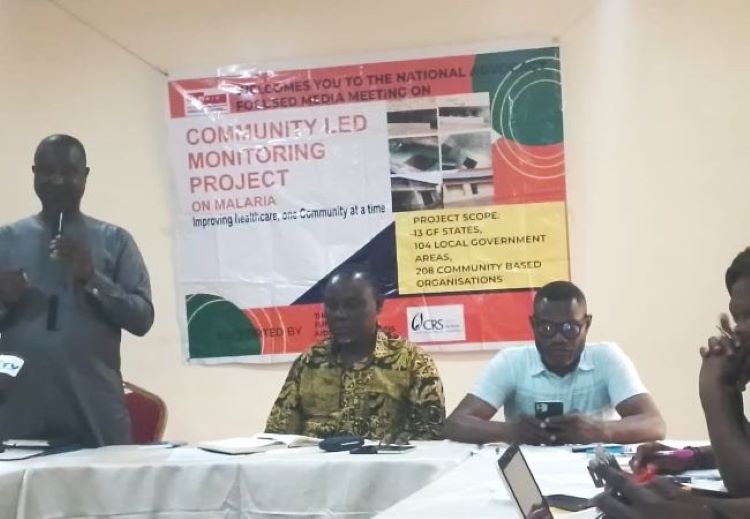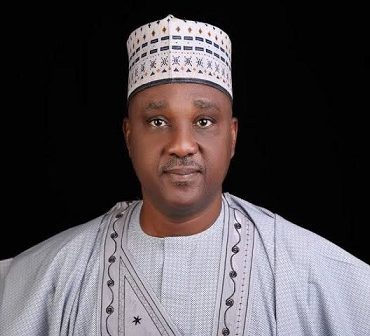Listeners:
Top listeners:
-
play_arrow
Kapital FM 92.9 The Station that Rocks!

To reduce the burden of malaria and achieve the set target of ensuring Nigeria eliminates the disease by 2030, the National Malaria Elimination Programme (NMEP) says there is a need for behavioural change among Nigerians.
The Head, Advocacy Communication and Social Mobilisations, National Malaria Elimination Programme, Raphael Onyilo made the call at a media briefing on Malaria in Abuja.
The Head of Advocacy Communication and Social Mobilizations at NMEP, Mr. Raphael Onyilo, said the government alone cannot achieve the elimination of malaria.
He emphasized the critical role of the media in influencing the public to take precautions and remain conscious of preventing malaria, which is essential for Nigeria to win the war against the disease.
The convener of the media engagement and the National Coordinator, Civil Society in Malaria Control Immunization and Nutrition, Mr. Ayo Ipinmoye, urged the public to take advantage of the ongoing Seasonal Malaria Chemoprevention for children under five.
According to him, children under five, pregnant women, and those with pre-existing conditions are more vulnerable to contracting malaria, especially during the rainy season, due to their low immunity to the disease, making it life-threatening.
“Be aware: Everyone should be aware of and concerned about the possibility of Malaria infection during this season. It is not a disease that is afar It affects everyone and should take personal responsibility.”Protect yourself and your family if we all protect ourselves and families from Mosque bites, we would have prevented the infection and its effects within our own families.”
He noted that the rainy season brings significant rainfall and higher humidity levels, creating perfect conditions for mosquito breeding, particularly Anopheles mosquitoes, known for spreading malaria.
”The rains on their own are not the problem rather the interaction of water with existing environmental conditions. The incidence, severity and distribution of malaria is affected substantially by human activities – agriculture, mining, water storage, and by urbanization. Estimates indicate that 90% of the global burden of malaria is attributable to environmental factors.”
According to him, ‘ The effect of recent changes in climatic and environmental conditions experienced in many malaria-endemic countries, could affect disease incidences, prevalence, severity, transmission, and infection intensity amongst others.”
”Both the malaria parasite and the mosquitoes that spread it continue to adapt and defend themselves against treatments and insecticides, making the fight against malaria a race against time that has raged on throughout human history. Now, our world is changing again as we witness unprecedented climate disruption and warming – and increasing opportunities for malaria to take hold. (WHO).”
Also speaking, the Executive Secretary of the Coordinating Mechanism of Global Grant, Mr. Ibrahim Tajudeen, said that tackling the menace requires continuous collaboration among all stakeholders.
The stakeholders at the media engagement advocated for the mainstreaming of malaria awareness in all community engagements, especially during this season, as regular awareness enables people to take necessary precautions.
By Florence Adewale Edited by Modupe Aduloju
Written by: Modupe Aduloju
Similar posts
Recent Comments
No comments to show.-

After Hours
With Mayowa Soname
Mayowa Soname takes the reins and invites you into a world of thought-provoking conversations, sultry tunes, and a dash of nocturnal magic. This show is designed to cater to the discerning tastes of adults, offering a curated blend of content that sparks intellect, stirs emotions, and celebrates life's rich complexities.
close Top popular
Chart
-
-
play_arrow
Sunshine Tommy Blues
-
play_arrow
-
-
play_arrow
Red Frank Lee
-
play_arrow
-
-
play_arrow
Eclipse Donna May
-
play_arrow
-
Copyright Kapital FM 92.9 Abuja - The Station that Rocks!









Post comments (0)